Uganda
Tens of thousands of refugees in Uganda are struggling to get by amid cuts to humanitarian aid.
Among them is Agnes, a mother of six, who fled the Democratic Republic of Congo when fighting got close to her home.
Only the most recent arrivals in the country get complete food assistance. Agnes has been able to find a job since she arrived, and says she and her children often go hungry.
"The money we used to get would help in buying food, soap and clothes for our children. Now we do not get money and we are hopeless. Our kids are roaming about barefoot, in dirty clothes, boils all over their bodies because of poor feeding, life is hard in all aspects. They are not even going to school. If I do not sell myself I won't get school fees to take them to school," she says.
The largest refugee hosting country in Africa, Uganda has a reputation for generosity towards those forced from their homes in neighbouring countries.
It houses 1.7 million refugees.
But according to humanitarians and officials in the country, the level of international aid for refugees is insufficient.
The UNHCR high commissioner, Filippo Grandi, is calling for more funding.
"We get $50 billion a year to run activities all over the world but we would need much more, that’s what I am saying. How do we fill all these gaps? This is why we need to mobilize development assistance,” he says.
According to the UN, around 10,000 new arrivals enter Uganda every month.
Many of those who arrived in recent months have fled the conflict in Sudan, which broke out in April 2023.




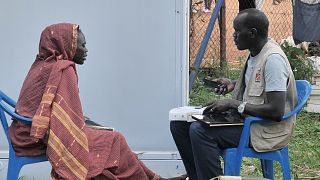
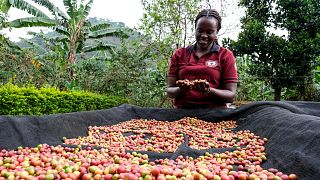
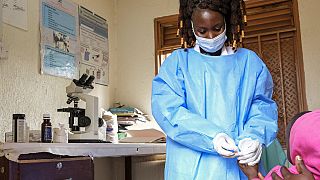

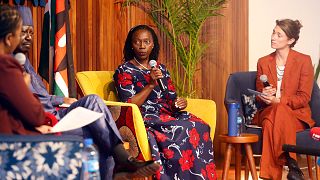

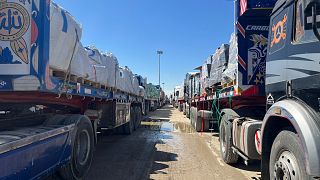
Go to video
DRC: M23 rebels expel civilians to Rwanda
Go to video
South Africa urges white farmers to stay amid U.S. refugee controversy
Go to video
South Africa: Cyril Ramaphosa to meet with Donald Trump in US next week
Go to video
Episcopal church won't assist resettling South Africans 'refugees' in US
Go to video
White South Africans welcomed in US not "refugees", South African leaders and scholars say
01:05
Dwindling humanitarian supplies in South Sudan put 60,000 malnourished children at risk